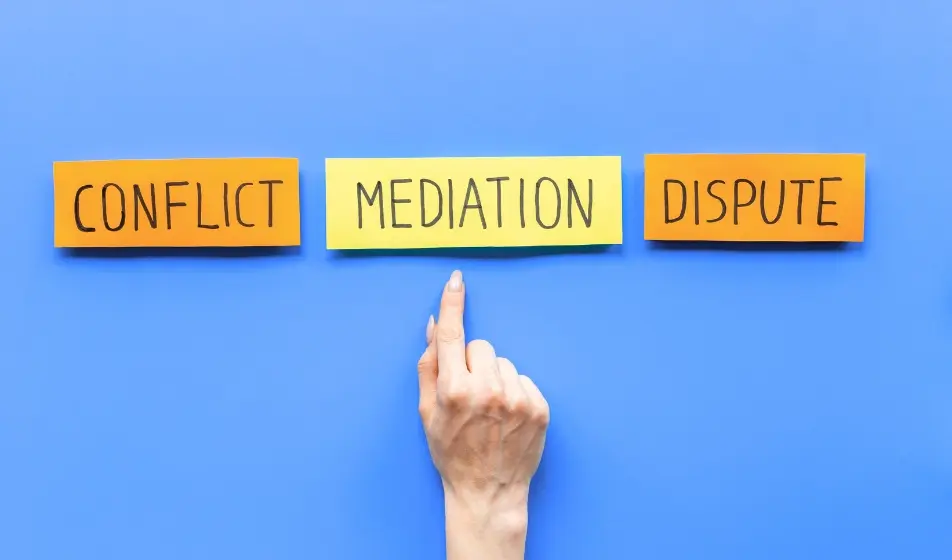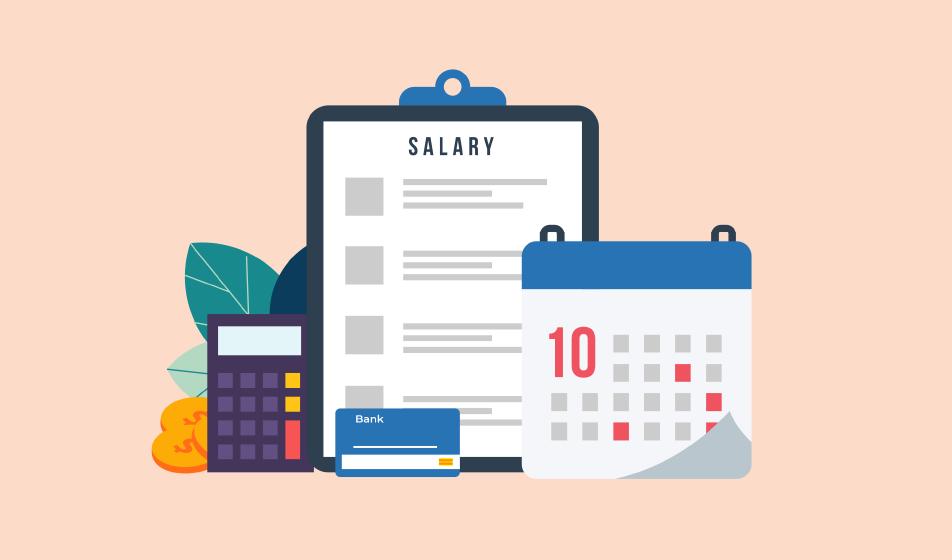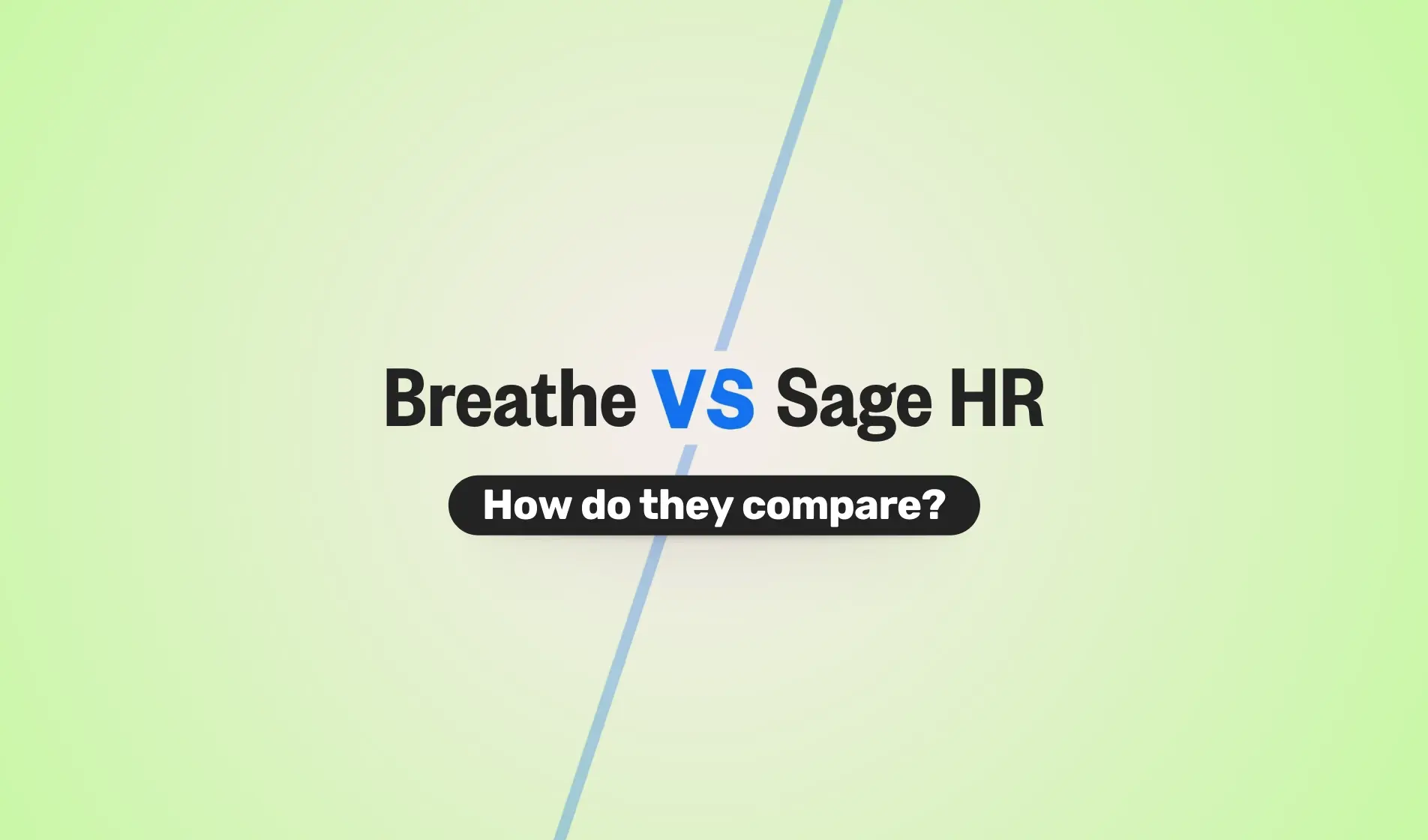Workplace mediation is a powerful voluntary process for resolving conflict in a collaborative, confidential, and constructive way.
Unlike formal processes that are generally adversarial, workplace mediation provides a structured yet informal space for people to talk, be heard, and explore solutions together.
We talk to Breathe Partner and HR expert Kaye Shane (FCIPD) from One-HR about workplace mediation.
Workplace mediation is an opportunity to pause the formal route and try something more human-centred, often with faster, more positive results. This process offers significant benefits for employers, including cost-effectiveness, time efficiency, and improved organisational outcomes.
When facilitated by a trained professional, mediation reduces tension, rebuilds trust, and helps prevent disputes from escalating.
It can strengthen workplace relationships and contribute to a more respectful and resilient culture.
For employers, this means fewer grievances, less time lost to conflict, lower staff turnover, lower costs and better outcomes for everyone involved.
Mediation also supports effective conflict management strategies in the workplace, helping to address disputes proactively and constructively.
Why addressing workplace conflict matters
The role of HR in supporting mediation
Why some employees decline mediation
The importance of confidentiality
Fostering a mediation-friendly culture
What is workplace mediation?
Workplace mediation is a voluntary and confidential process led by a trained, neutral mediator.
Their role is not to take sides or make decisions, but to guide a structured conversation that helps parties understand each other’s perspectives and agree on a way forward that’s right for them.
There are no hard and fast rules for when mediation is appropriate, making it a flexible option for a variety of situations.
"Mediation isn’t about taking sides — it’s about helping people feel heard and facilitating for them a way forward they can own.”
According to ACAS research the cost of workplace conflict costs UK businesses £28.5 billion every year, that’s around £1000 annually for every employee.
Mediation can be used for a wide range of workplace disputes — from personality clashes and communication breakdowns to team tensions or manager-employee disagreements.
It is especially effective when used early, before issues harden or formal action is taken. Mediation is suitable for addressing workplace issues such as performance issues, disciplinary matters, and communication problems.
Some companies offer mediation through trained internal mediators, establishing an internal mediation scheme or internal scheme. However, when there is a perception of bias or in sensitive or complex cases, it may be better to use an objective external mediator or opt for external mediation.
Either way, the goal remains the same: to resolve issues informally, respectfully, and with the parties sharing ownership of the outcome.
How workplace mediation works
-
Voluntary – All participants must agree to take part.
-
Impartial – The mediator facilitates the process, not the outcome.
-
Confidential – Conversations are private and not shared outside the process. Not even to the organisation that commissioned the mediation. The only information is what the parties agree to share.
-
Collaborative – Focused on understanding each other’s perspective, building or rebuilding communication and thereby trust, and finding win-win solutions.
-
Future-focused – Although there is an opportunity for each party to be heard, predominantly the conversation is aimed at looking forward on what the parties would like to achieve, not backwards or on blame.
-
Ground rules – At the start of the mediation process, the mediator establishes ground rules to ensure a respectful and productive environment.
The process typically involves an initial meeting where the mediator introduces themselves, explains the workplace mediation process, and sets expectations for the parties involved.
Parties may meet with the mediator separately in individual sessions before coming together in the same room for a joint meeting.
During the joint session, the mediator facilitates a facilitated dialogue to help the parties identify key issues and find solutions. Agreements are reached collaboratively, focusing on mutually acceptable solutions.
Why addressing workplace conflict matters
Some conflict at work is natural and can lead to creativity and new ideas being discussed — and when addressed positively, it can lead to growth. But unresolved conflict can damage morale, impact performance, and increase absenteeism.
Formal processes like grievances or tribunals may resolve the legal aspects, but they rarely repair relationships which can lead to loss of productivity and quiet quitting.
“Sometimes the biggest shift in mindset doesn’t come from solving the problem, but from changing the conversation.”
Mediation helps resolve workplace conflict and resolve disagreements, and it can mend relationships and rebuild relationships between employees.
It's particularly effective for addressing issues relating to the employment relationship and workplace dispute, providing a constructive approach to resolving workplace disputes.
Ideally, all managers would be trained in conflict resolution techniques and be able to spot disputes early before they become a problem. However, when this isn't possible for whatever reason, mediation offers a person-focused approach.
It allows issues to be addressed sensitively and constructively, often avoiding the need for formal action. By embedding mediation into their conflict resolution approach, employers can reduce legal costs, protect wellbeing, and maintain a more harmonious working environment.
The role of HR in supporting mediation
HR teams play a pivotal role in identifying when mediation might help. They can work with managers and leaders to:
-
Recognise early signs of conflict.
-
Signpost employees to internal or recommend external mediators.
-
Help create a culture where mediation is seen as a supportive step, not a sign of weakness.
-
Support parties involved in the process to request mediation and ensure all other parties are informed and included.
Mediation supports the organisation’s wider goals of inclusion, respect, and psychological safety. It also reduces the burden on grievance procedures and builds confidence in informal resolution.
Why some employees decline mediation
Despite its benefits, some employees may be hesitant to engage in mediation. Common concerns include:
-
A lack of trust in the process or the mediator, there may be a perception of bias or a lack of trust in the confidentiality.
-
Fear of negative consequences from speaking openly by other members of the team.
-
The perception of power imbalances — particularly in conflicts involving managers.
-
Unclear benefits or assumptions that it won’t lead to change.
-
Previous experiences of failed attempts at resolution.
-
Moral voluntary commitment required in mediation agreements, as these agreements aren't legally binding but rely on the parties’ commitment to adhere to the terms agreed upon.
The mediator's role as a neutral person and impartial third party is crucial, and strong conversation management skills are needed to build trust and facilitate open dialogue.
These concerns are valid. It’s important that employees never feel coerced into mediation. HR can help by clearly explaining what mediation involves, ensuring mediators are trusted and well-trained, and reinforcing the voluntary and confidential nature of the process.
The importance of confidentiality
Confidentiality is one of the most essential aspects to effective mediation. It creates a psychologically safe environment where participants can speak honestly, knowing that what they share won’t be used against them later.
This builds trust and encourages meaningful conversation.
The mediator’s role includes explaining how the whole process works including the importance of confidentiality and ensuring that all parties respect its boundaries.
Confidentiality also protects the integrity of the process, supports a positive work environment, and protects the employment relationship.
Outcomes of mediation
Outcomes vary depending on the situation. Some mediations lead to written agreements or action plans, while others result in verbal understandings or commitments to improved communication.
The mediators never keep notes of the mediation so the process stays confidential.
However, sometimes parties’ put their outcomes into a mediation agreement which can be followed up after the mediation has happen to track progress.
When an agreement is reached, it's often documented as a written agreement, and it is good practice to regularly review the agreement to ensure compliance and prevent future disputes.
Even when no written agreement is reached, the process helps parties identify key issues and work towards a mutually acceptable solution. This in itself can improve workplace dynamics and prevent future conflict.
Fostering a mediation-friendly culture
Organisations that embed mediation as part of their approach to conflict resolution are more likely to create open, inclusive workplaces. Leaders play a key role in this:
-
Leading by example in handling conflict constructively.
-
Encouraging early and informal resolution.
-
Providing access to trained mediators.
-
Uphold confidentiality and support the outcome, whether formal or informal
-
Introducing mediation and offering both internal and external mediation options, supported by mediation services, can help resolve workplace disputes effectively.
A mediation-friendly culture signals that the organisation takes relationships seriously and is committed to resolving issues with care and respect whilst building a resilient workforce.
Best practice for employers
Employers can really gain from using mediation to sort out workplace disputes, but it’s key to follow some good practice tips to make sure it works well.
ACAS recommends that employers put a clear mediation policy in place, provide difficult conversation training or some other dispute resolution training for HR professionals and line managers, and establish a structured plan for how workplace mediation can be accessed.
It’s important to keep the mediation process private, fair, and something everyone chooses to join. The mediator’s job is to facilitate the conversation guiding people to identify the main issues and so they can come up with ways to resolve situations.
Following up on mediation and getting feedback from those involved can also make a difference to staff and the organisation.
A structured approach to the workplace mediation process, including discipline procedures and disciplinary procedures, helps ensure fairness and effectiveness.
Final thoughts: Is your organisation ready to resolve conflict well?
With the right framework and mindset mediation can be transformative. It’s not just a conflict resolution tool — it’s a way of rebuilding relationships, enhancing trust, and making workplaces more respectful and resilient.
For organisations facing the complex realities of today’s working world, mediation is not a soft option. It’s a strategic one.
"Mediation doesn’t remove the difficult conversations. But it does give a tried and tested process that provides the safety and structure to have them well.”
You might also like...
FAQs
What is a workplace mediator?
A trained, neutral professional who helps colleagues resolve conflicts through open and structured dialogue. The mediator acts as an impartial third party and neutral person, facilitating a constructive approach and helping the parties involved identify key issues and find mutually acceptable solutions.
Is workplace mediation legally binding?
No, mediation is usually informal and non-binding. However, agreements are often upheld because they are reached collaboratively and documented as a written agreement, which can be regularly reviewed.
Can employees refuse mediation?
Yes. Mediation is voluntary. But employers can encourage uptake by reinforcing trust, neutrality, and confidentiality. Any of the parties involved can request mediation at any stage of a workplace dispute.
What are the benefits of mediation for employers?
It reduces conflict-related costs, protects employee wellbeing, preserves working relationships, and allows employers to manage disputes proactively, often preventing escalation to formal procedures, employment tribunals, or tribunal claims.
What is early conciliation?
Early conciliation is a mandatory process offered by ACAS as part of a formal process to resolve disputes before they reach a tribunal. It can lead to legally binding settlements without litigation and may prevent the need for an employment tribunal or tribunal claims.
Is mediation and early conciliation the same?
No. Early conciliation doesn't use the same process as mediation and is not used for the same reasons. There is currently a recruitment drive to bring on more tribunal judges as the tribunal system is so backlogged. More workplace mediation would help employees and reduce the need for formal procedures that create the need for early conciliation. Employment mediation is a voluntary, informal, and confidential process, distinct from formal procedures like grievances, discipline procedures, or employment tribunals.
How is mediation different from other formal procedures?
Mediation is an informal, voluntary process focused on finding solutions and rebuilding relationships, while formal procedures such as disciplinary procedures, grievance processes, and employment tribunals are structured, legalistic, and often adversarial. Mediation allows for a more flexible, constructive approach and gives employers and employees more control over outcomes.
Who can request mediation?
Any of the parties involved in a workplace dispute can request mediation, either informally or through HR. The process is designed to help the parties identify key issues and work towards a mutually acceptable solution.

Author: Kaye Shane (FCIPD)
With over a decade of experience in senior HR roles at blue-chip companies, Kaye is a seasoned HR professional. She holds a BA in Communications and an MA in Human Resource Management and has been a CIPD member since completing her studies. In 2012, Kaye established OneHR to offer proactive HR solutions to SMEs. Her expertise lies in streamlining business operations by providing in-house HR support or partnering with organisations to address specific needs. OneHR delivers comprehensive, tailored HR solutions. Services range from strategic HR planning and business partnering to precise HR administration. The team also includes CMC-accredited mediators for efficient workplace dispute resolution and provides targeted training in leadership, management, EDI, neurodiversity, and HR skills coaching. Kaye is dedicated to promoting diversity, sustainability, and ethical business practices, ensuring solutions align with each organisation’s culture and values to foster growth.





